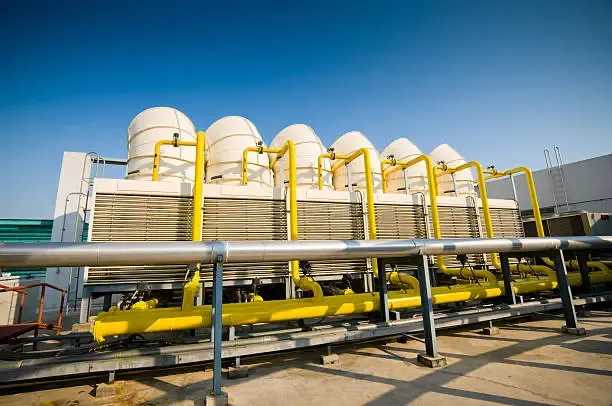
CONTACT US
Air Cooling vs. Liquid Cooling of BESS: Which One Should You Choose?
When it comes to managing the thermal regulation of Battery Energy Storage Systems (BESS), the debate often centers around two primary cooling methods: air cooling and liquid cooling. Each method has its own strengths and weaknesses, making the choice between the two a critical decision for anyone involved in energy storage solutions. In this blog, we will explore the differences between air cooling and liquid cooling in BESS, helping you make an informed decision based on your specific needs.
Understanding the Basics of Cooling in BESS
Battery Energy Storage Systems (BESS) are essential for storing energy and ensuring its availability when needed. However, like all electronic systems, batteries generate heat during operation, especially when discharging or charging at high rates. Effective cooling is crucial to maintain the efficiency, safety, and longevity of these systems. Without proper thermal management, batteries can overheat, leading to reduced performance, potential damage, and even safety hazards.
Air Cooling in BESS
Air cooling is the most common method used in BESS, primarily because of its simplicity and cost-effectiveness. This method involves using fans or blowers to circulate air around the batteries, dissipating the heat generated during operation.
Advantages of Air Cooling
Cost-Effective: Air cooling systems are generally less expensive to install and maintain compared to liquid cooling systems. This makes them an attractive option for projects with budget constraints.
Simplicity: The design and implementation of air cooling systems are straightforward. With fewer components, the chances of system failure are reduced, making air cooling a reliable choice.
Low Maintenance: Since air cooling systems don’t involve complex mechanisms or fluids, maintenance is usually minimal, leading to lower long-term costs.
Disadvantages of Air Cooling
Limited Cooling Capacity: Air cooling may not be sufficient for high-capacity BESS or in environments with extreme temperatures. The efficiency of air cooling is directly affected by ambient temperature, which can limit its effectiveness.
Noise Levels: Fans and blowers used in air cooling systems can generate significant noise, which may be a concern in certain installations.
Space Requirements: To achieve effective cooling, sufficient airflow must be maintained, which can require more space compared to liquid cooling systems.
Liquid Cooling in BESS
Liquid cooling, on the other hand, uses a coolant fluid to absorb and dissipate heat from the batteries. This method is becoming increasingly popular, especially in large-scale or high-performance BESS applications.
Advantages of Liquid Cooling
Superior Cooling Efficiency: Liquid cooling systems can absorb more heat and maintain more stable temperatures, making them ideal for high-capacity or high-performance BESS.
Compact Design: Liquid cooling systems are typically more compact than air cooling systems, as they don’t require as much space for airflow. This can be a crucial factor in installations where space is limited.
Quieter Operation: Liquid cooling systems generally operate more quietly than air cooling systems, making them suitable for environments where noise is a concern.
Disadvantages of Liquid Cooling
Higher Costs: The installation and maintenance of liquid cooling systems can be more expensive than air cooling systems due to the complexity of the system and the need for specialized components.
Potential for Leaks: Liquid cooling systems involve the circulation of coolant, which introduces the risk of leaks. This can lead to potential damage to the BESS and the need for repairs.
Complexity: The design and implementation of liquid cooling systems are more complex, requiring more specialized knowledge and components, which can increase the chances of system failure if not properly managed.
Comparing Air Cooling and Liquid Cooling: Which One Is Right for You?
Cost Considerations
If budget is a primary concern, air cooling is generally the more cost-effective option. The lower initial costs and reduced maintenance expenses make it a viable choice for many applications, especially in smaller or less demanding installations.
However, for larger or more critical BESS installations where performance and reliability are paramount, the higher costs of liquid cooling may be justified by its superior cooling efficiency and reduced space requirements.
Performance and Efficiency
Liquid cooling systems outperform air cooling systems in terms of efficiency, especially in high-capacity or high-performance BESS. If your system operates in an environment with extreme temperatures or requires consistent, stable cooling, liquid cooling is likely the better choice.
Maintenance and Reliability
Air cooling systems, with their simpler design, are generally easier to maintain and have a lower risk of failure. Liquid cooling systems, while more efficient, require more maintenance and have a higher risk of leaks or other issues. Consider the available resources and expertise when choosing between these systems.
Space and Noise Considerations
If space is limited or noise is a concern, liquid cooling systems may be the better option due to their compact and quieter operation. Air cooling systems, while simpler, require more space for effective airflow and can generate significant noise.
Environmental Impact
The choice between air cooling and liquid cooling can also be influenced by environmental factors. Liquid cooling systems, while more efficient, may require more energy to operate, potentially increasing the overall carbon footprint of the BESS. Conversely, air cooling systems are generally more energy-efficient but may struggle to maintain optimal performance in extreme climates.
Conclusion
Choosing between air cooling and liquid cooling for your BESS depends on various factors, including budget, performance requirements, maintenance capabilities, and environmental considerations. Air cooling offers simplicity, cost-effectiveness, and reliability, making it suitable for smaller or less demanding applications. Liquid cooling, with its superior efficiency, compact design, and quieter operation, is better suited for high-capacity or high-performance systems.
In the end, the right choice for your BESS will depend on your specific needs and the conditions under which your system will operate. By carefully considering the advantages and disadvantages of each cooling method, you can ensure that your BESS operates efficiently, safely, and reliably.

